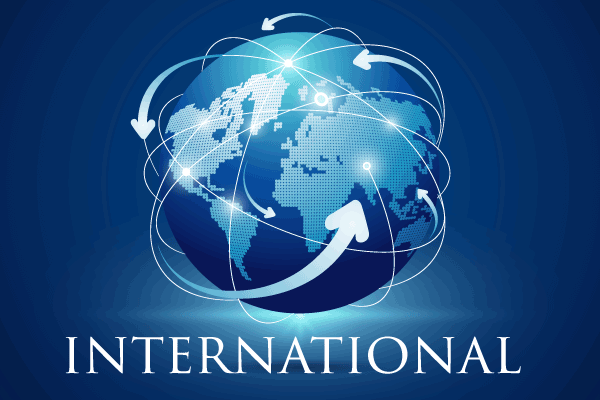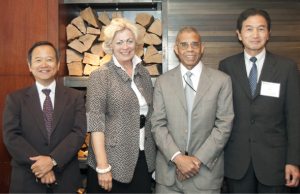 The numerous areas that affect trade and investment between California and Japan, one of the state’s largest export partners, were the subject of a lively exchange this week at the annual luncheon meeting between the California Chamber of Commerce and leaders of Japanese companies with operations in the state.
The numerous areas that affect trade and investment between California and Japan, one of the state’s largest export partners, were the subject of a lively exchange this week at the annual luncheon meeting between the California Chamber of Commerce and leaders of Japanese companies with operations in the state.
Conversations touched upon topics such as the California legislative and regulatory process; state, U.S. and Japanese election politics; and presidential candidates’ attitudes toward pending trade agreements.
Heading the Japanese business delegation were Ken-ichi Sato, president of the Japanese Chamber of Commerce of Northern California (JCCNC), and Satoshi Okawa, president of the Japan Business Association of Southern California (JBA).
Sato is executive vice president and chief financial officer of Kokusai Semiconductor Equipment Corporation. Okawa is vice president for Sumitomo Corporation of Americas and general manager for its Los Angeles office.
Representing the CalChamber at the luncheon were CalChamber Board member Frank Washington, CEO of Crossings TV, and Susanne T. Stirling, vice president, international affairs.

Trans-Pacific Partnership
The Japanese business executives reiterated their support for the Trans-Pacific Partnership Agreement (TPP), which will facilitate trade and promote investment between the countries that are party to it.
The TPP contains 30 chapters of trade, labor, intellectual property, and environmental regulations.
Approval of the TPP is pending in the U.S. Congress, and there are hopes that the agreement will be approved in a timely fashion.
Cost of Doing Business
Also discussed at the luncheon was the cost of doing business in California.
A biennial survey conducted by the Japan External Trade Organization (JETRO) summarizes factors that Japanese investors take into account along with California’s obvious advantages of a large market size, mild and stable climate and great number of Japanese communities.
Following recent and pending increases in the minimum wage in California and a number of cities, the JETRO survey of Japanese companies showed an uptick in respondents identifying labor costs as a concern when operating in California. In the 2016 survey, 80% cited labor costs as a concern, compared to 69.9% in 2014.
Taxes were identified as a concern by 50.8% of those surveyed in 2016, compared to 44.5% in 2014.
The JCCNC/JBA annual report on Japanese investors in California also commented on the high cost of housing as a challenge, citing the June 2016 National Apartment List Rent Report as showing San Francisco, San Jose and Los Angeles among the 10 cities in the nation with the highest rents.
Japanese Investment in State
Japanese companies are creating more than 224,000 jobs in California, according to the 2016 JETRO survey.
The largest percentage (33.7%) of Japanese companies are involved in the services industry.
As of December 31, 2015, there were 1,470 Japanese-affiliated companies doing business in California. More than 96% of Japanese company employees are hired locally.
Notable Statistics
• As of 2015, California is the source of 20.5% (up from 18.6% in 2014) of total U.S. export goods to Japan. High-tech equipment and agricultural products are the main exports.
• Japan is California’s third largest import partner and fourth largest export partner.
• More than 570,000 Japanese travelers visited California in 2014; this is 21% of travelers to the state from all of Asia. Japan was home to the fourth largest number of visitors to California (outside of visitors from Mexico and Canada). Only China, England and Australia sent more visitors to California.
• Japan is one of the top five countries to import California wine.

